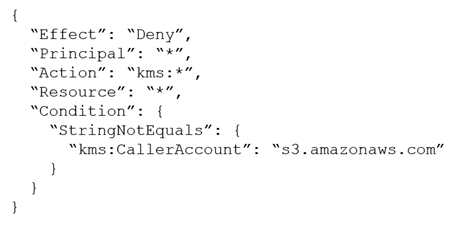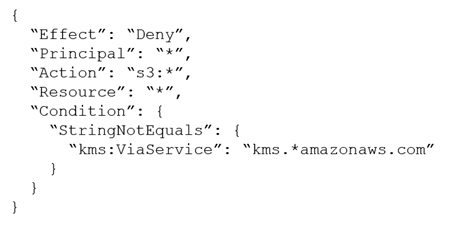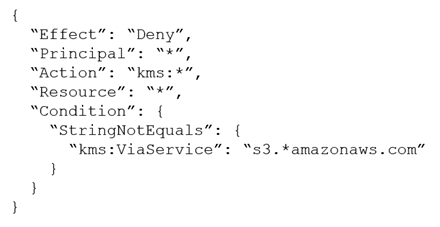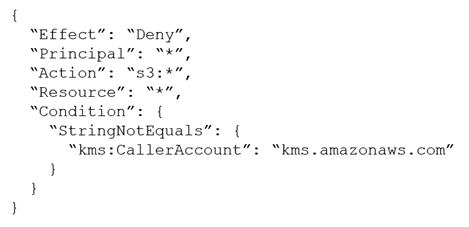

A company stores sensitive documents in Amazon S3 by using server-side encryption with an AWS Key Management Service (AWS KMS) CMK. A new requirement mandates that the CMK that is used for these documents can be used only for S3 actions.
Which statement should the company add to the key policy to meet this requirement?
A.
B.
C.
D.
hk436
Highly Voted 3 years, 8 months agovikaswalajay
2 years, 9 months agoRaphaello
Most Recent 1 year, 4 months agoM2ao
1 year, 9 months agoToptip
2 years, 1 month agocreatechange
2 years, 4 months agoD2
2 years, 7 months agovikaswalajay
2 years, 9 months agovikaswalajay
2 years, 9 months agosapien45
2 years, 10 months agoMDJago
2 years, 11 months agojackfei
3 years agoJonfernz
3 years, 1 month agosam_live
3 years, 5 months agoroger8978
3 years, 6 months ago1awssec
3 years, 8 months agokiev
3 years, 8 months agoTollaMS
3 years, 8 months agobabaseun
3 years, 8 months ago